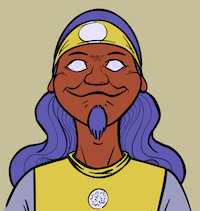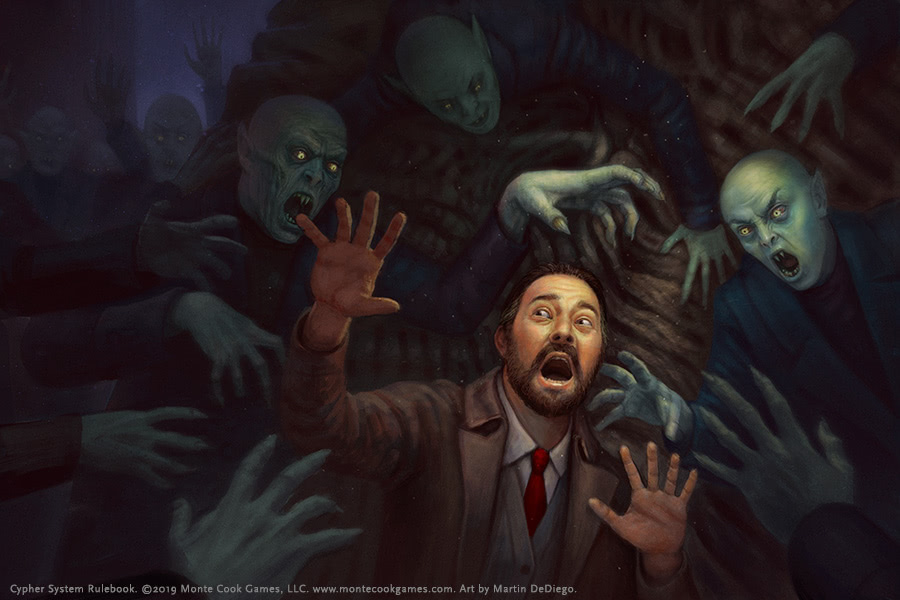Having four to five people constantly engaged in what is an inherently slow and long game of roleplaying is sometimes a challenging task.
Gamifying and incentivizing various little side activities and processes is a great way to keep the engagement going when players are out of the spotlight.
Delegate nonessential dice rolls and procedures
In Cypher, GMs don’t roll dice so let’s push this concept even further to cover any idle players waiting for their turn.
From which direction the wind blows?
How is the weather today?
What are the chances of X?
What materials we need and how much time to craft X?
All these questions players can answer themselves if you provide them with tools to do so. A wizard might be rheumatic to weather patterns, so why not give them the Hex Flower weather minigame so they can roll on it each day and establish the weather and ponder what is the chance of rain tomorrow. Anyone can lick a finger and ascertain the direction of the wind by rolling a d8. Print out that complicated crafting scheme and have idle players prepare the numbers for the group’s crafter while waiting for their turn.
Did someone dump their CHA stat? They are now responsible for rolling on the misfortune table. Take that min-maxers!
Group’s ranger/scout can roll on the random encounter tables. Print the whole thing and hand it over to them. Hide the extreme results (assuming a bell curve here) to retain a bit of creativity.
Do you use reaction roll tables? Have the charismatic face of the party roll these and apply any bonuses or penalties.
Journaling
Unless you are lucky and your group loves to write, you are most likely journaling the whole game by yourself. With a little gamification and incentives, we can spread that work around the table and get players engaged in this activity.
Each type of character is inherently interested in certain game information. For example, Fighter might be interested in monster stats and tactics. Have them discover these piecemeal and then write them down after each combat. To incentivize this behavior have these notes also be an in-game artifact that can be sold for XP, or gold, or other benefits to certain guilds, factions, or NPCs. With this little trick we’ve achieved the following benefits:
- A player who plays a fighter will take some of the journaling load off of you as the activity is directly beneficial to them
- They will have something to do while idle (write)
- They will need to find where and to whom to sell these notes, opening up the world and interacting with it.
The wizard might journal substances, strange ephemera, magical fluxes and either sell those or use them for their arcane research.
Druid might catalog plant life for their magical herbarium, craft potions, or sell recipes.
A thief might draw maps, and sell these as “treasure maps”, once they remove the treasure, of course.
Bard may write down NPCs and their details to get an upper hand in social situations. They could also write songs after the adventure ends. Here’s how that might work:
- After an adventure or a scenario, come up with a catchy song title and a decent set of notes on the affair.
- Sing the song or tell the tales as downtime action of the group’s adventures in taverns and balls for money and a chance for reputation increase or faction benefits.
For example, the “Misty Mountains” song could fair well in dwarven establishments, with a chance to unlock contacts, patrons, or miscellaneous boons with their faction or guilds.
Activities should be meaningful, fun, and fit both characters and player’s sensibilities. Don’t force them.


Comments